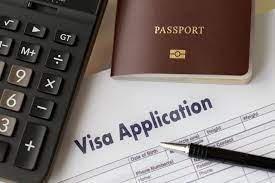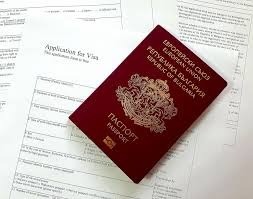
Traveling to Saudi Arabia has become increasingly popular among Lithuanian citizens, whether for business, tourism, or religious purposes. Understanding the visa requirements and application process is crucial for a smooth and successful trip. This guide provides detailed information on the types of Saudi visa for Lithuanian citizens, the application process, necessary documentation, and tips for a hassle-free experience.
Types of Saudi Visas
Saudi Arabia offers several types of visas for Lithuanian citizens, depending on the purpose of the visit. These include:
- Tourist Visa: Introduced in 2019, the tourist visa allows visitors to explore Saudi Arabia’s rich cultural heritage, stunning landscapes, and modern cities. It is valid for one year and allows multiple entries, with a stay of up to 90 days per entry.
- Business Visa: This visa is intended for Lithuanian citizens traveling to Saudi Arabia for business purposes, such as meetings, conferences, or negotiations. The business visa can be single-entry or multiple-entry, with varying validity periods.
- Work Visa: For Lithuanian citizens seeking employment in Saudi Arabia, a work visa is required. This visa is issued based on a work permit from a Saudi employer and involves a more complex application process, including medical examinations and background checks.
- Hajj and Umrah Visas: These visas are specifically for Muslims intending to perform the Hajj or Umrah pilgrimages. The Hajj visa is available during the annual Hajj season, while the Umrah visa can be obtained year-round, except during the Hajj season.
- Student Visa: Lithuanian students accepted into Saudi educational institutions can apply for a student visa, which allows them to stay in the country for the duration of their studies.
- Family Visit Visa: For Lithuanians with family members residing in Saudi Arabia, the family visit visa facilitates short-term visits. It can be single-entry or multiple-entry, depending on the sponsor’s request.
Application Process
The process of obtaining a Saudi visa for Lithuanian citizens involves several steps. Below is a detailed guide to help you navigate the application process:
Step 1: Determine the Type of Visa
Identify the appropriate visa type based on the purpose of your visit. Each visa type has specific requirements and validity periods, so ensure you select the correct one to avoid complications.
Step 2: Gather Required Documents
The documentation required for a Saudi visa application varies depending on the visa type. However, some common documents include:
- Passport: Your passport must be valid for at least six months from the date of entry into Saudi Arabia and have at least two blank pages.
- Passport-sized Photographs: Recent passport-sized photographs with a white background.
- Visa Application Form: Complete the visa application form accurately. This can usually be done online through the Saudi eVisa platform or at a Saudi embassy or consulate.
- Flight Itinerary: A copy of your flight bookings or travel itinerary.
- Proof of Accommodation: Hotel reservations or a letter of invitation from a host in Saudi Arabia.
- Travel Insurance: Proof of travel insurance that covers medical expenses in Saudi Arabia.
- Proof of Financial Means: Bank statements or other documents proving you have sufficient funds to cover your stay. SAUDI VISA FOR LUXEMBOURGISH CITIZENS
Additional documents may be required for specific visa types, such as a business invitation letter for a business visa or an acceptance letter from a Saudi educational institution for a student visa.
Step 3: Submit the Application
You can submit your visa application online through the Saudi eVisa portal or in person at the Saudi embassy or consulate in Lithuania. For online applications, follow the instructions on the eVisa platform, upload the required documents, and pay the visa fee. For in-person applications, make an appointment at the embassy or consulate, bring all necessary documents, and pay the visa fee.
Step 4: Wait for Processing
Visa processing times vary depending on the visa type and the volume of applications. Generally, tourist visas are processed quickly, often within a few days. However, work visas and other specialized visas may take several weeks. It is advisable to apply well in advance of your planned travel dates.
Step 5: Receive Your Visa
Once your visa application is approved, you will receive your visa either electronically (for eVisas) or as a stamped visa in your passport (for embassy/consulate applications). Check the visa details carefully to ensure all information is correct.
Tips for a Smooth Visa Application Process
- Apply Early: Start the visa application process as early as possible to allow ample time for processing and to avoid last-minute issues.
- Double-Check Documentation: Ensure all required documents are complete and accurate. Missing or incorrect information can lead to delays or rejection.
- Follow Instructions: Carefully follow the instructions provided by the Saudi eVisa portal or the embassy/consulate to avoid any mistakes.
- Stay Informed: Keep up-to-date with any changes in visa regulations or requirements by regularly checking official Saudi government websites or contacting the Saudi embassy/consulate.
- Seek Assistance: If you are unsure about any aspect of the visa application process, consider seeking assistance from a visa service provider or travel agency.
Traveling to Saudi Arabia
Once you have obtained your Saudi visa, it is important to prepare for your trip to ensure a smooth and enjoyable experience. Here are some key considerations:
Cultural Sensitivity
Saudi Arabia has a unique cultural and social environment. It is important to respect local customs and traditions, including dress codes, social etiquette, and religious practices. For example, modest clothing is required, and women should wear an abaya (a loose-fitting black cloak) in public.
Safety and Security
Saudi Arabia is generally safe for travelers, but it is always wise to stay informed about the local security situation. Follow travel advisories from your government and exercise caution in unfamiliar areas.
Health and Medical Care
Ensure you have comprehensive travel insurance that covers medical expenses in Saudi Arabia. It is also advisable to carry a basic medical kit and any necessary medications. Familiarize yourself with the local healthcare facilities in case of emergencies.
Currency and Payments
The official currency in Saudi Arabia is the Saudi Riyal (SAR). Credit and debit cards are widely accepted in major cities, but it is a good idea to carry some cash for smaller establishments or in rural areas. Currency exchange services are available at airports, banks, and exchange offices.
Transportation
Saudi Arabia has a well-developed transportation network, including domestic flights, trains, buses, and taxis. Major cities like Riyadh, Jeddah, and Dammam have reliable public transportation systems. Renting a car is also an option for greater flexibility, but be aware of local driving regulations and conditions.
Exploring Saudi Arabia
With your visa in hand and preparations complete, you can look forward to exploring the diverse attractions that Saudi Arabia has to offer. Here are some highlights:
Historical and Cultural Sites
- Al-Ula: Home to the ancient Nabatean city of Hegra (Madain Saleh), a UNESCO World Heritage site with stunning rock-cut tombs and historical ruins.
- Riyadh: The capital city, offering a blend of modernity and tradition, with attractions such as the historic Masmak Fortress and the contemporary King Abdulaziz Center for World Culture.
- Jeddah: A vibrant coastal city known for its beautiful Corniche, historic Al-Balad district, and the iconic King Fahd Fountain.
Natural Wonders
- Edge of the World: A dramatic escarpment near Riyadh, offering breathtaking views of the surrounding desert landscape.
- Red Sea Coast: Pristine beaches and crystal-clear waters ideal for diving, snorkeling, and water sports.
- Asir Mountains: A lush and green region in southwestern Saudi Arabia, perfect for hiking and exploring traditional villages.
Religious Sites
- Mecca: The holiest city in Islam, attracting millions of Muslims annually for the Hajj pilgrimage and year-round for Umrah. Non-Muslims are not permitted to enter Mecca.
- Medina: Another significant city in Islam, home to the Prophet’s Mosque and other important religious sites. Non-Muslims are not permitted to enter Medina.
Conclusion
Obtaining a Saudi visa for Lithuanian citizens involves careful planning and adherence to the application requirements. By understanding the different types of visas available and following the application process meticulously, Lithuanian travelers can enjoy a smooth and rewarding visit to Saudi Arabia. From historical landmarks and natural wonders to cultural experiences and religious sites, Saudi Arabia offers a rich and diverse travel experience for those who venture to explore its many treasures.





